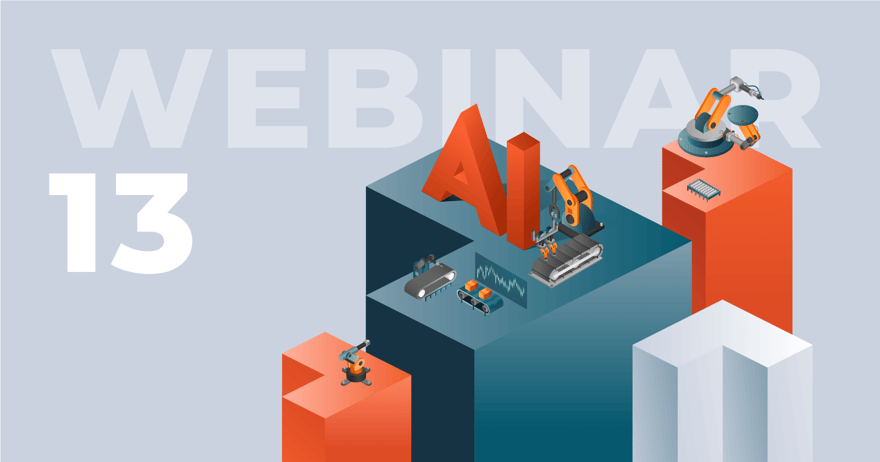Market Insights
With the AI Era Ascendant, Let’s Ensure Opportunities Are Not Marred by Risks
Ed Maguire

The Era of Intelligence
Artificial intelligence (AI), machine learning, and cognitive computing are different terms that all refer to a similar range of technologies. AI powers everything from speech recognition to search software, airplane navigation and autopilot systems, video image recognition systems, and intelligent assistants for smartphones. A new generation of self-learning computing algorithms is being integrated into applications of all kinds. Integration with advanced robotics will power a new generation of autonomous and semiautonomous machines.
The terms “artificial intelligence” or “cognitive” software describe a set of technologies that automate the processes of prediction. Cognitive/AI software can support decision-making more rapidly, with higher confidence based on applying deeper analytics to more data. Characteristics of cognitive software include the ability to perform natural language processing for input and information ingestion. These systems perform learning in real-time as new data arrives into the system, applying past experiences and data to generate and predict possible outcomes. Potential outcomes can be scored for human analysis.
2018 saw growing interest and investment in machine learning/artificial intelligence technologies, even with growing concerns about the potential risks from uncontrolled AI. The combination of increased computing power, a massive influx of data, and a new generation of research drive innovations and new applications of the technology.
Investments in AI moving to the foreground
Venture Capital funding is nearing the dot-com era. In 2018 US companies raised $99.5 billion in venture investment compared to $119.6 billion in 2000 according to the PwC MoneyTree Report. AI startups have raised nearly 10^% of the total at $9.33 billion of 2018 VC investments. According to the report, VC investments in AI startups have grown at a Compound Annual Growth Rate (CAGR) of 36% - reaching an inflection in 2018 which saw an increase of 72% over 2017. 466 startups funded from 533 in 2017, and after increasing for four years. There is increasing selectivity toward the seed stage, however as the market matures, seed-stage deals declined from 39% of total deals in 2017 to 30% in 2018. The largest deal in the US during 2018 was a $500 million funding round for self-driving car startup Zoox Inc. Globally the largest deal was Beijing-based SenseTime Group which raised $600 million. SenseTime develops image recognition software and is valued at $4.5 billion. In February, the White House released an executive order to reinforce the US’s leadership on AI research by prioritizing investments in pure R&D as well as innovation across different agencies in the government.
Applied AI going mainstream across sectors
In nearly every industry, there’s growing activity related to applying AI and machine learning technologies to accelerate top-line growth, increase efficiencies and manage risks. In many respects, the applications of advanced predictive technologies represent an extension of business analytics and Big Data approaches.
When we look at ascendant industries such as autonomous vehicles, connected products, home automation, distributed energy networks, robotic automation, and other areas, AI is increasingly becoming table stakes for future roadmaps even though production level adoption varies widely across industries and firms.
Creating an ethical framework for future AI
As businesses and processes become increasingly dependent on “black box” algorithms to make decisions, there are growing concerns that biases could be baked into predictive algorithms, potentially perpetuating bias in decisions in areas such as hiring, credit decisions, even life or death decisions such as whether self-driving cars are more likely to hit people or not depending on race. A recent conversation with SAP’s SVP of Intelligent Enterprise Solutions Mike Flannagan highlights the challenges around bias in AI; when we build predictive algorithms using historical data as training sets, whatever biases may have been present at that time may unintentionally be perpetuated without an ethical framework to detect bias.
The risks are apparent to large corporations at the forefront of AI research; both Microsoft and Google have acknowledged risks inherent to AI in their annual 10-K filings. Cathy O’Neill, author of Weapons of Mass Distraction, and Professor Sander Klous of the University of Amsterdam are focused on creating an ethical framework around AI to help detect and eliminate bias from algorithms. While there is a growing focus on potential risks from AI, the good news is the broad-based efforts are underway to help identify and root out bias and discrimination from algorithms. Like most transformative technologies, AI presents challenges as well as opportunities, but we are clearly on the cusp of major advances as the technology becomes subsumed into industries and daily life.

Want to gain insights from companies transforming through AI? Join Ed Maguire and featured speakers from Senseye and RevTwo for our next webinar, AI: The Next Wave in Productivity in Connected Industry on March 21st.

AI: The Next Wave in Productivity in Connected Industry

